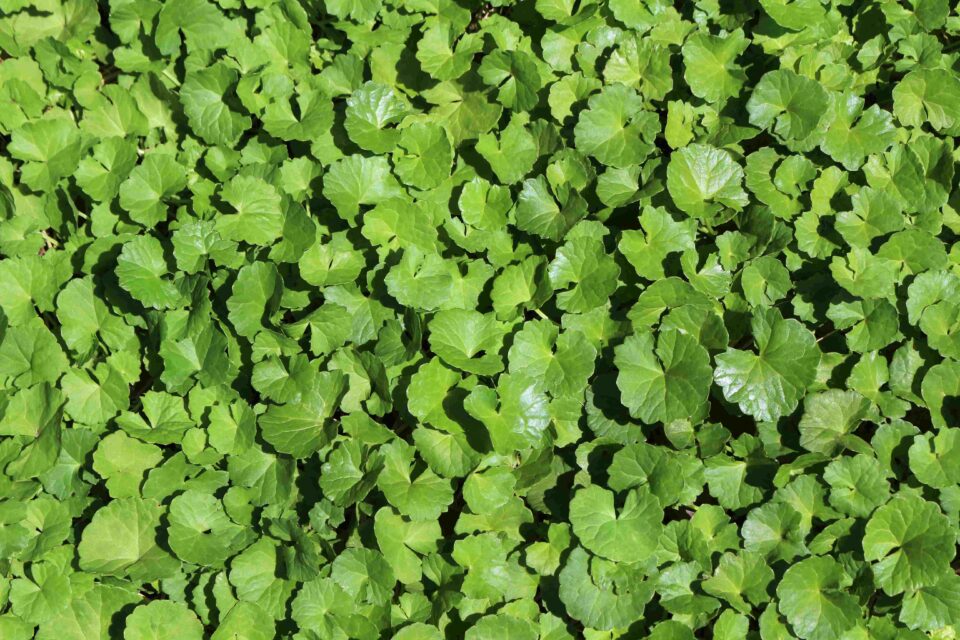Brahmi, an indigenous Indian herb, is one of the best Ayurvedic herbs for varicose veins.
Varicose veins are a common condition that may cause pain and discomfort. Risk factors include obesity, pregnancy, and prolonged periods of standing. When the valves that control blood flow stop functioning properly, blood may clog in the veins, resulting in varicose veins. Ayurvedic treatments, natural home remedies, or even laser treatments are options for those seeking relief.
How Brahmi works?
Brahmi is believed to help in healing varicose veins through its antioxidant and anti-inflammatory properties. It contains various nutrients and minerals that are beneficial for maintaining healthy blood vessels and improving circulation. Brahmi helps to supply the necessary nutrients required for the proper toning of the veins, which makes them less tortuous.
Brahmi is a rich source of zinc, which helps to cure the itchiness of varicose veins. It also helps to prevent blood clotting by inhibiting the formation of collagen. Blood clots are a major complication associated with varicose veins, and preventing their formation can help to alleviate the symptoms of varicose veins.
Moreover, Brahmi helps to increase the concentration of Vitamin E in the blood. Vitamin E is an essential nutrient that plays a crucial role in maintaining healthy blood vessels. It has antioxidant properties that protect the blood vessels from damage caused by free radicals. Vitamin E also helps to reduce inflammation in the body, which can help to alleviate the symptoms of varicose veins.
While there is limited scientific research on the effectiveness of Ayurvedic treatments for varicose veins, the National Institutes of Health states that 80% of diagnosed cases of varicose ulcers can be treated using Ayurvedic treatment protocols.
The study published in the Global Journal of Research on Medicinal Plants Indigenous Medicine in 2016 examined the efficacy of Ayurvedic treatments in the case of a 60-year-old woman suffering from varicose veins. The woman experienced symptoms such as pain in the lower legs, accompanied by tortuous veins and discoloration. The study found that after receiving Ayurvedic treatments, the woman’s condition greatly improved. The treatments were not specified in detail, but it is suggested that Ayurvedic remedies, particularly Brahmi, can provide relief and improve the symptoms caused by varicose veins. While this study provides a promising result for the use of Ayurvedic treatments for varicose veins, more research is needed to determine the effectiveness of these treatments for a wider range of patients.
Ayurvedic doctor’s opinion
Varicose veins are a common condition that affects many individuals, causing discomfort and pain. While there are many treatments available to alleviate symptoms, Ayurvedic remedies, such as Brahmi, have been increasingly studied for their potential to help manage varicose veins. The research conducted thus far suggests that Brahmi may be a promising natural treatment option.
Several studies have explored the potential role of Brahmi in treating varicose veins. For example, one study published in the Journal of Ayurveda and Integrative Medicine in 2016 found that Brahmi was effective in reducing the severity of varicose veins. In this study, participants were given a Brahmi-based Ayurvedic formulation for six months, and their symptoms were tracked over time. The results showed that the formulation was able to reduce the severity of varicose veins and improve the overall quality of life.
Another study published in the International Journal of Research in Ayurveda and Pharmacy in 2017 investigated the effects of Brahmi and other Ayurvedic remedies on venous insufficiency. This study found that Brahmi was able to improve venous tone and reduce inflammation, both of which are important factors in managing varicose veins.
Furthermore, a study published in the Journal of Medicinal Plants Studies in 2017 explored the effect of Brahmi and other herbs on venous ulcers, a common complication of varicose veins. The results of this study showed that a topical ointment containing Brahmi was able to significantly reduce the size and severity of venous ulcers.
These studies, along with others, suggest that Brahmi may be a promising natural treatment option for managing varicose veins. Brahmi is a rich source of nutrients that are essential for vein health and may help improve blood flow, reduce inflammation, and prevent blood clots. Additionally, Brahmi may be effective in reducing the severity of varicose veins, improving venous tone, and reducing the size and severity of venous ulcers.
While the research on the efficacy of Brahmi in treating varicose veins is promising, more studies are needed to confirm these findings and determine the optimal dosages and formulations for maximum benefit. However, the potential benefits of Brahmi for varicose veins make it a promising area for further research and exploration.
Conclusion
Varicose veins can be a frustrating and painful condition, but Brahmi may provide a natural alternative to traditional treatments. The research conducted thus far suggests that Brahmi may be effective in managing varicose veins, reducing inflammation, and improving overall vein health. As research continues in this area, Brahmi may become an increasingly important tool for those seeking relief from varicose veins.
Lastly, Ayurvedic herbs can relieve and improve the symptoms of varicose veins. However, it is important to consult a doctor and ensure that the treatment is appropriate before beginning any treatment.

